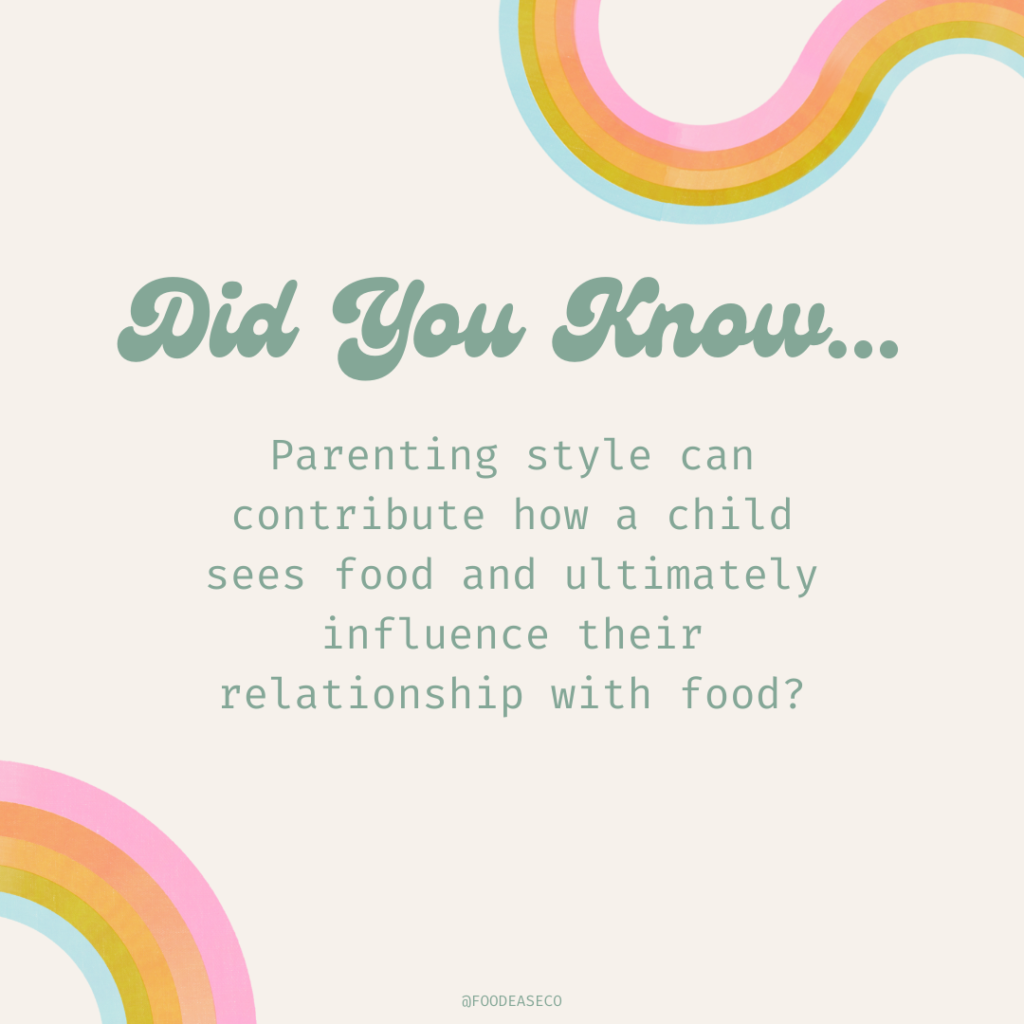Parenting Styles and Eating Habits in Kids: Is There A Pipeline to EDs?

Introduction
Eating habits and mindsets around food develop from an early age. Researchers have hypothesized that eating habits and behaviors may be associated with different parenting styles and have even suggested that approaching parenting in a certain way can improve a child’s long term relationship with food.

Negative Parenting Styles
Negative parenting styles can include many different approaches. Some of the patterns studied include powerful implementation, which is comparable to an authoritarian approach, inconsistent parenting (e.g., “you threatened to punish your child and then do not actually punish them”), corporal punishment, and low monitoring in which the parent is unaware or checked out of their role as guardian.
These negative parenting styles have been linked to children’s eating behavior. High levels of inconsistent parenting were associated with high levels of food responsiveness (meaning when the child was given an option, they would choose to eat most of the time), emotional over- and undereating, and food fussiness. It was also associated with high levels of enjoyment of food and satiety responsiveness. In addition, high levels of corporal punishment were specifically related to more food responsiveness and more emotional eating, and less satiety responsiveness. Parents who used high levels of powerful implementation had children with more food responsiveness and less enjoyment of food. And lastly, low levels of monitoring were related to more emotional overeating and more slowness in eating.
Positive Parenting Styles
Eating behaviors were also observed in children with parents who used positive parenting techniques. Positive parenting styles consisted of parental involvement, meaning the parent was involved in activities and extracurriculars, positive parenting (e.g., “having a friendly talk with the child”), and responsible parenting (e.g., providing justification for correct behavior in a given situation).
The study found that high levels of positive parenting were related to low levels of emotional overeating. In contrast, high levels of responsible parenting was related to low levels of enjoyment of food. Aside from these patterns, positive parenting techniques did not have a significant impact on eating behaviors in the sample from this study.
Long Term Effects on Eating Behaviors
In this specific study, more negative parenting styles were associated with eating behaviors which are more often related to potential weight problems and body image issues in the long term. Positive parenting did not show a consistent relationship with eating behavior, good or bad.
How Does This Relate to Eating Disorders?
We know that eating disorders are more than just restricting calories or feeling out of control around food. There is a major physiological component that contributes to the development and severity of eating disorders. This specific study reveals the idea that there may be contributing factors, such as parenting styles, that predispose kids to develop eating disorders. Understanding this linkage and investigating it further may reveal useful treatment approaches for people who have developed eating disorders.
Sources:
Have a Question?


Do you have any questions or suggestions? Feel free to contact us! Just leave your email here, and we will get back to you shortly.